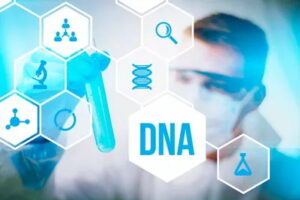Conditions Treated >
ADHD
What Is ADHD (Attention Deficit Hyperactivity Disorder)?

What is ADHD ?
ADHD (Attention-Deficit/Hyperactivity Disorder) is a neurodevelopmental disorder typically characterized by inattention (formerly known as ADD), and/or hyperactivity and impulsivity. Individuals with ADHD may experience significant difficulties with focus, organization, and self-control.
Clinicians often observe children with ADHD displaying a high level of energy, constant movement, fidgeting, or disruptive behaviour. “Classic” ADHD describes presentations where both inattentive and hyperactive-impulsive symptoms are present. Common signs include:
- Answers before someone is done talking (constantly interrupts)
- Does not wait patiently
- Talks non stop
- Taps, fidgets, and squirms
- Moves to another activity at an inappropriate time
- Runs or climbs outside of a play situation
- Does not play well alone or quietly
- Always “moving”
What is ADD?

ADD, also known as Attention Deficit Disorder (ADD) is a form of ADHD. In 1994, medical professionals began to call both Attention-Deficit/Hyperactivity Disorder (even if the child/adult was not hyperactive). You may hear ADD also termed as ADHD, inattentive type (or without hyperactivity). A person with only ADD has a neurological disorder, which causes behavior issues including: difficulty with understanding or following instructions, focusing (usually schoolwork), keeping up with tasks or assignments, and social interaction. A child with ADD may have learning disabilities or receive repeated disciplinary actions. ADD is very, very common and sometimes some may just say the child is “lazy” due to inattentiveness, lack of following through with tasks or failure to complete assignments.
Common signs are:
- Does not pay attention (easily distracted)
- Avoids or does not like long mental tasks
- Does not stay on task (even while playing)
- Unorganized and forgetful
- When directly spoken to does not appear to listen
- Does not focus on details
- May lose things
- Makes simple mistakes
- Has a hard time working through instructions
What is the difference between ADD and ADHD?

Those with ADD typically do not act out or are disruptive in school. Often, they sit quietly, daydreaming, or are just not interested. ADHD sees more people act out, maybe exhibit hyperactivity, or impulsivity.
What causes ADHD?

- Genetics: ADHD is passed down from parents to children (although it may “skip” a generation or it may fluctuate in severity. We see about 1/4 of children who have ADHD also have a close family member with it.
- Suspected environmental agents: Smoking and alcohol use during pregnancy may cause an increased risk for ADHD in children. High levels of lead may also contribute to ADHD. These are both common in Orange County.
- Dietary factors: Malnutrition as an infant may be a strong risk factor in developing ADHD.
How is ADD or ADHD Diagnosed?

When an ADHD Psychiatrist meets with a patient who may have ADHD he or she will look for symptoms that may been present before the age of 12. Are the symptoms present in different locations (school, home, play, etc.). Is there interference or reduction of functioning in daily routines. And, are symptoms not explained by another mental health condition.
In ADHD Psychiatry our goal is to not just prescribe a convenient medication, but to truly understand what the child is going through. While we do prescribe medication, it is very important to only prescribe in situations where it is necessary. Many times a child may just feel neglected or needs extra attention from a parent.
What is the connection between Obesity and ADHD?

We are currently studying the link between Dopamine to ADHD and Obesity. Those with ADHD may have lower dopamine levels in the prefrontal cortex. Dopamine levels can increase when a person eats (eating may be pleasurable) and eating may be a form of self-medication. Overeating and binge eating may lead to obesity if not controlled.
How is ADHD treated?

First, as child psychiatrists and an ADHD psychiatrist it is important to make sure we perform an accurate diagnosis. It is common for people to be diagnosed with ADHD, when there may be similar symptoms to a completely different problem. Some also feel guilt, shame, or embarrassment about being either diagnosed with ADHD (counseling will provide help). Frustration may be even more apparent after a diagnosis. It is imperative we as psychiatrists understand the medical history and do a comprehensive assessment, there will be a screening for learning disabilities.
If you go to a psychologist, counselor, or therapist you may receive numerous counseling sessions. These professionals can not prescribe medication, a psychiatrist can. If you are 100% committed to not utilizing medication, that may be the route you want to go, however, medication is a very effective tool and counseling alone may not give you the desired results.
ADHD is most commonly treated with counseling and medication. In 1999, the National Institute of Mental Health (NIMH) published results of a study that found that medication alone or a combination of medication and behavioral counseling were both more effective ADHD treatments than counseling alone. The study also found that combined treatment was usually more effective in reducing anxiety, improving school performance and supporting the parent-child relationship, and also required lower medication doses than the medication-only approach.
Some treatments will work well with one child and not with another. Physicians usually try different medications and dosages until the child’s symptoms improve. Parents should be attentive to their child’s response to treatment and work with the prescribing physician to find the right medication and dosage.
As much as 80% of children who have ADHD will need medication as teenagers and 50% may need to continue medication into adulthood.
ADHD medications include:
- Stimulants: Stimulant medications are the standard first-line treatment for children with ADHD; they include amphetamine, dextroamphetamine, lisdexamfetamine, and methylphenidate. These drugs stimulate the production of the neurotransmitter dopamine, which is thought to play a role in brain functioning and self-control. The stimulants come in long-, short- and sustained-release forms that can last through the school day.Stimulant side effects are generally considered minor and include decreased appetite, insomnia, anxiety and irritability. Side effects are usually related to the amount of medication taken, with higher doses causing more side effects.
- Non-stimulants: The only non-stimulant medication currently approved for first-line ADHD treatment by the U.S. Food and Drug Administration (FDA) is Strattera, or atomoxetine. Instead of stimulating dopamine, atomoxetine increases the production of the neurotransmitter norepinephrine. Strattera is approved for use in adults, adolescents and children over age 6. It is the only FDA-approved ADHD treatment that is not controlled under the United States Controlled Substances Act.
- Anti-depressants: Though not FDA-approved for ADHD, anti-depressants, including Wellbutrin (bupropion hydrochloride) and tricyclics such as Norpramin and Pertofrane (desipramine), and Tofranil (imipramine), are sometimes used as second-line treatments when multiple stimulants have not been effective, are contraindicated or cause severe side effects.
What happens if ADHD is not treated?

Signs of ADHD usually begin in a child under the age of 6-8 years old. The common symptoms may slowly form over a period of months. It is extremely important we diagnose and treat ADHD as early as possible, because an untreated child may be severely impacted in one of the most important stages of their lives. Some symptoms may decrease as a person matures, but this may be after they are done with school and have already learned social development skills.
Do Adults Get ADHD?

ADHD is a lifetime condition. Some people are just not diagnosed with ADHD until they are adults (perhaps they just were not diagnosed as children). Usually the symptoms of adults with ADHD are not as extreme as they are with children. We typically see the scenario where an adult is having a hard time getting their life organized, they may have a hard time with keeping appointments and even keeping a job.
ADHD By The Numbers...

- Percent of children diagnosed with ADHD 10.8%
- Percent of boys diagnosed with ADHD 14.8%
- Percent of girls diagnosed with ADHD 6.7%
Source: cdc.gov/nchs/data/hus/2018/012.pdf
adhd orange county, adhd treatment in orange county, adhd psychiatrist near me.
Contact With Us
Health Consultations Available
We’re here to help you on your journey toward better mental health. Reach out to us anytime—whether you have questions, need support, or are ready to schedule a session.
Our team at Renue Psychiatry is dedicated to providing compassionate, confidential, and convenient telehealth psychiatry services.
Get in Touch
📞 Phone: (480) 544-4400
📧 Email: info@renuepsychiatry.com
🌐 Website: renuepsychiatry.com
Related Conditions

Addiction
Drug addiction, or substance use disorder, is a mental illness which affects the brain and a person’s behavior.

Bipolar Disorder
Bipolar disorder is typically a combination of genetics, environment, and altered brain structure

Obsessive-Compulsive Disorder
Obsessive-Compulsive Disorder (OCD) is a pattern of thoughts, which are often unwanted, or fears

Post-Traumatic Stress Disorder
PTSD is a mental health condition, which is often developed after a traumatic event.
We offer telehealth services
for your mental health.
Get the Help You Need Without Leaving Your Home
Contact us to schedule an appointment and get a free consultation today.
